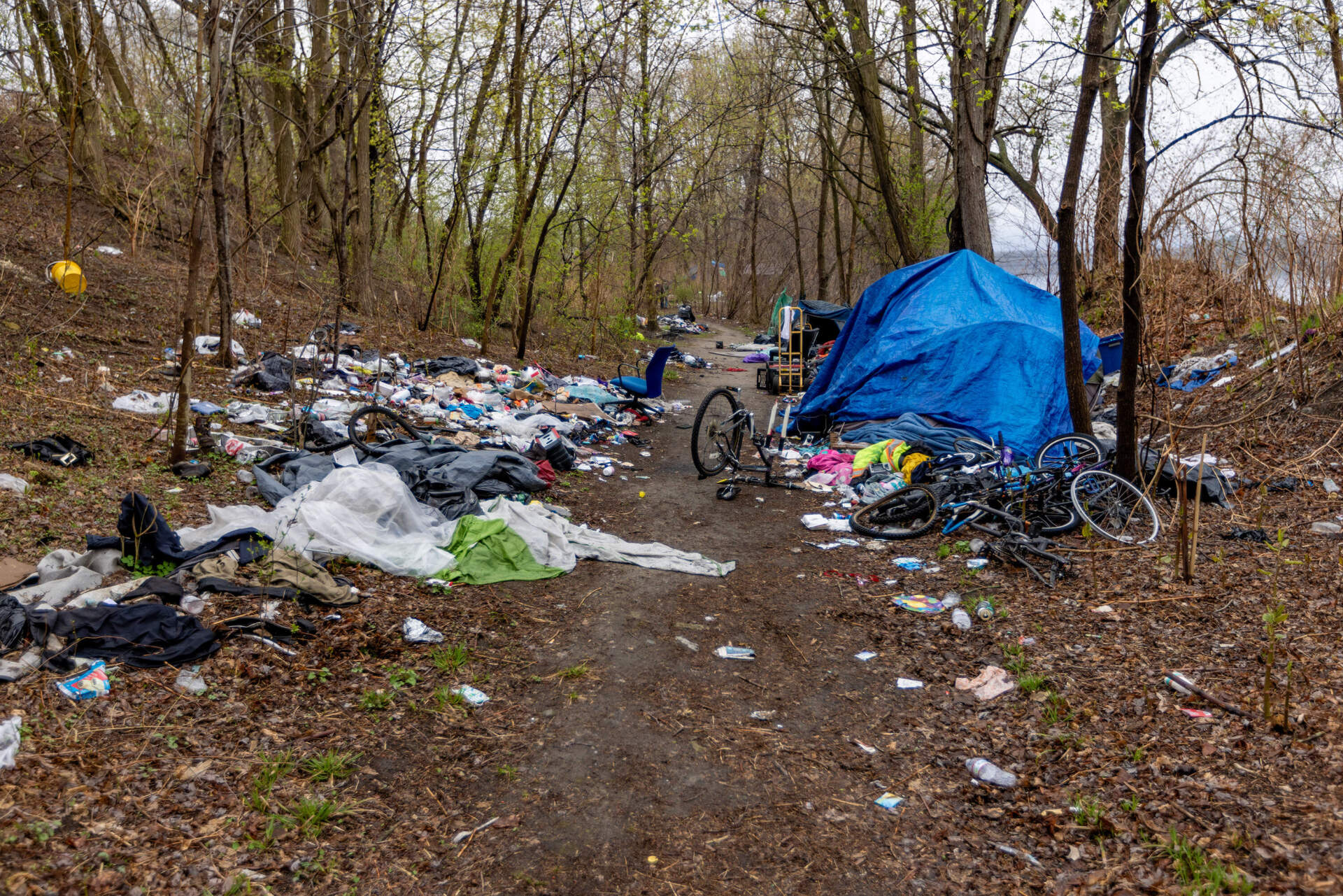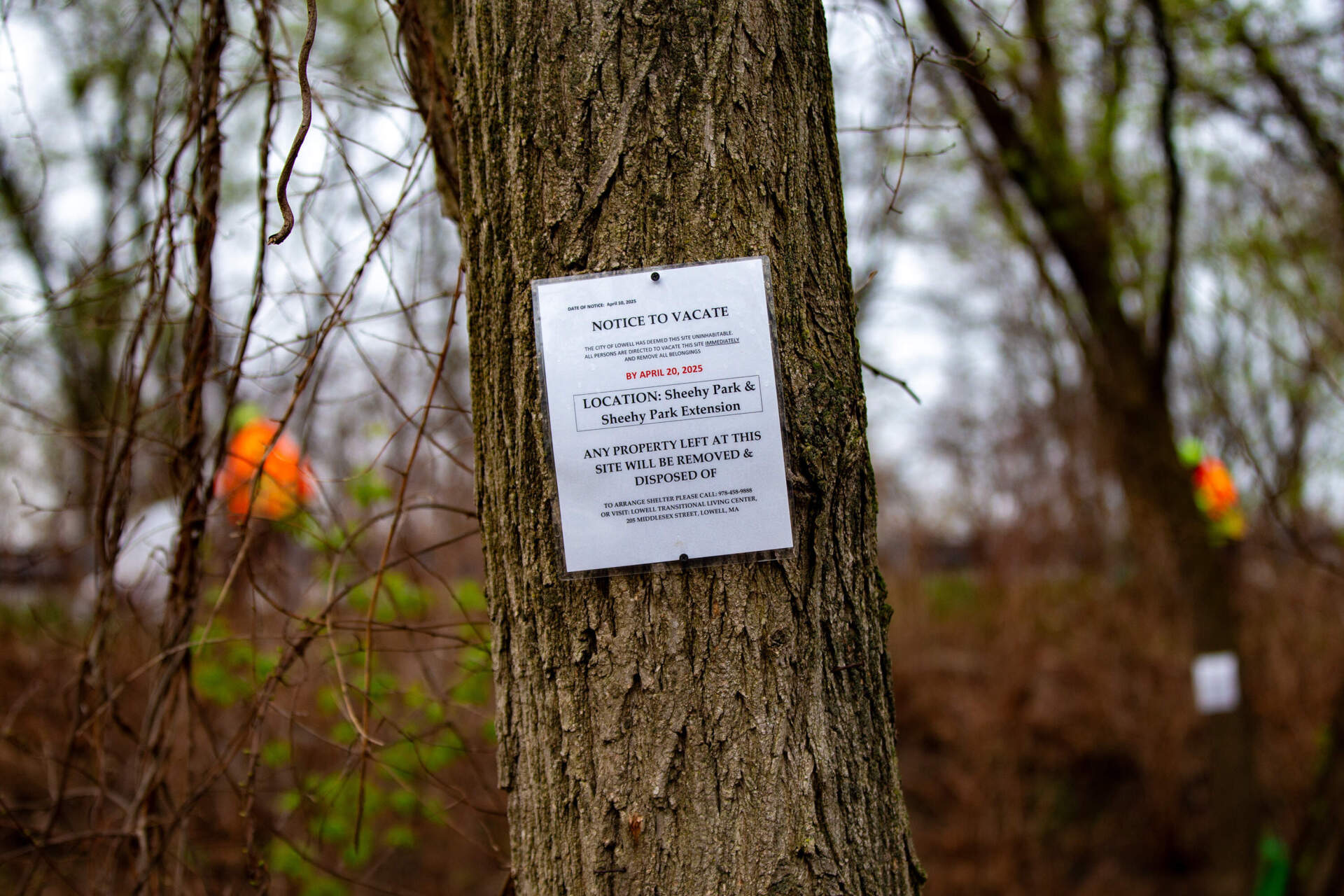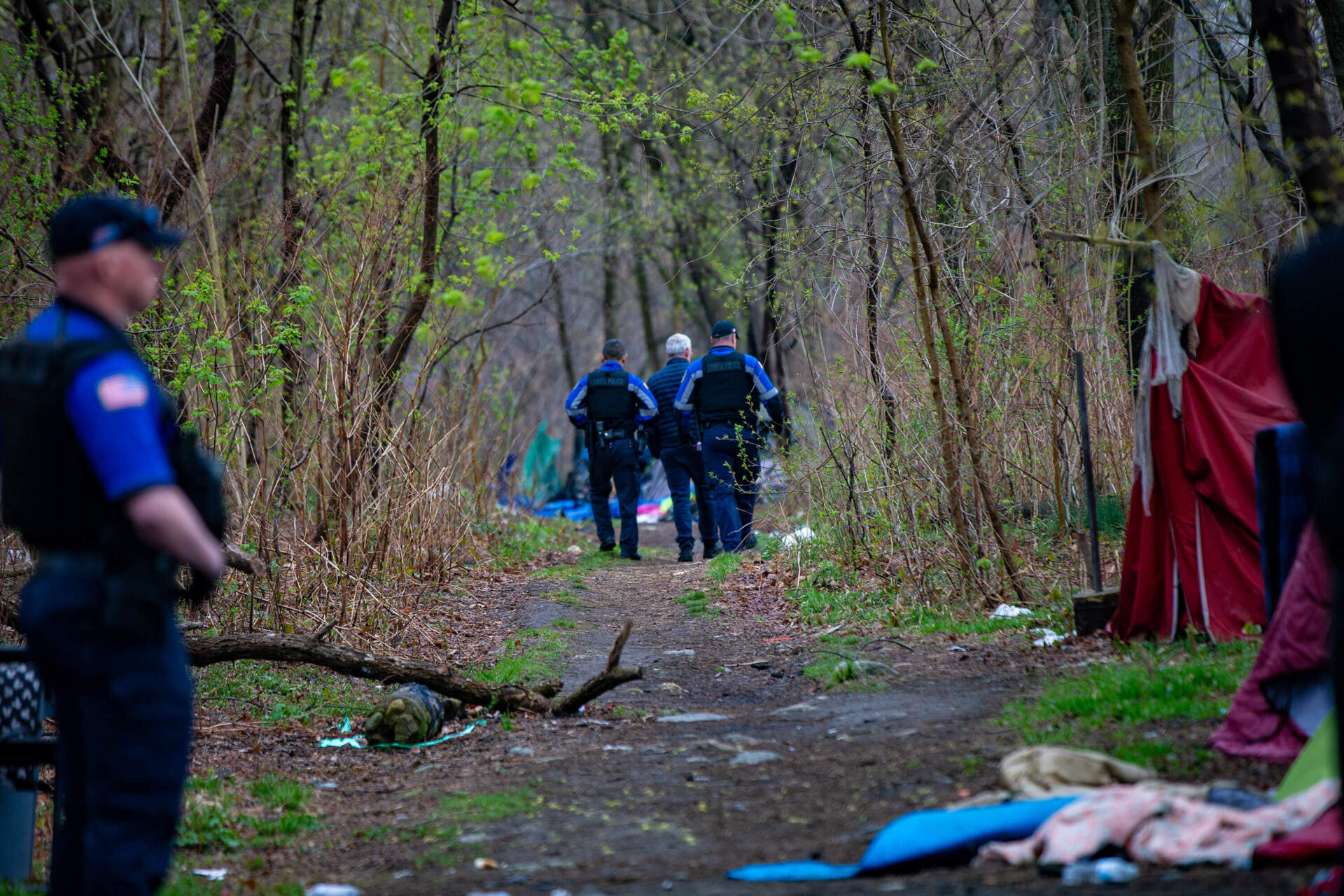Advertisement
Longtime homeless encampment in Lowell is razed

Crews on Tuesday began what will be a days-long process to clear out a large homeless encampment along the Merrimack River in Lowell. Workers from a private waste removal company used track loaders and dumpsters to remove tents, furniture, and piles of clothing, blankets and garbage.
Lowell City Manager Tom Golden said the city council in recent months expressed concern about pollution of the river from the encampment and asked his office to find out who owned the property. His office determined it's MBTA-owned land and asked state lawmakers who represent Lowell for help. The state delegation reached out to the MBTA, which is paying for the clean-up.
The MBTA confirmed details of the arrangement, saying it hired the private contractor to do the work.
"There's garbage. There's needles," Golden said of the encampment area, adding that there's also human waste because of the lack of a restroom. "We're always very concerned with health and the environment, and we have not supported people living outside. And we're trying to get the assistance people need."
Lowell enacted a public camping ban last fall, but that's limited to city-owned property. The ban allows police to cite and fine people who continue to camp after space in a shelter has been offered.

Geneva Hobbs and her partner have been living in the encampment for about a year. The 39-year-old said she wants local leaders to focus on getting people into housing.
"The more awareness we bring, the better. Maybe they'll actually be able to see that what they're doing isn't properly right," she said. "Put people somewhere ... feed them, know what I mean? Don't just shun them off and push them to the side, because we're still human."
The city's director of homelessness initiatives, Maura Fitzpatrick, stopped by the site Tuesday morning. She said the city's CO-OP outreach team has visited the site regularly for many months, checking on people and offering resources including connections to recovery programs and housing placement assistance.
"We are with these people every single day," Fitzpatrick said. "Some people are service-resistant, and they say no. We don't give up, though. We never stop trying."
Advertisement
The site is next to the city-owned Sheehy Park, along a path that runs through some trees and brush next to the river. That path connects to railroad tracks, where there are campsites tucked in the woods between the tracks and the river. Some people built shacks as homes on the property.
City workers posted notices to vacate throughout the property almost two weeks ago, saying the city had deemed it uninhabitable.

The encampment has grown over the past year. Edwin Caraballo, 33, said he'd been living in a tent there for about three years after struggling with substance use for almost half of his life.
"I was in a recovery program for, like, six months. So it was my time to leave soon," Caraballo said. "So I went in a sober house. But it was like all my [Supplemental Security Income] check was going to [pay rent for] it. So I didn't have money for food. So I just guess, like, I'd rather just be homeless so I could save money."
Caraballo said while it's tough to have his campsite removed, he understands the city's need to have the property cleaned. He and other residents who were on site Tuesday said they've moved their belongings to other places in the city to camp until they can obtain permanent housing. Caraballo said he's moving up a waitlist to get a Lowell Housing Authority apartment, and he's undergoing methadone treatment for his addiction.

About a dozen activists from a grassroots group that helps and advocates for people who are unhoused, called Lifting Lowellians: Assistance and Mutual Aid, stood in the area to protest the encampment removal. They held signs that read, "Sweeps are cruel" and "Housing, not sweeps."
"This does not fix the housing crisis at all. And it makes it harder for people whose lives are already in survival mode 24/7," said Jovanna Mason, a member of the group. "It's a way to violently take the little that these people have away from them."
Lowell police officers, including some from the CO-OP team, were on site to maintain public safety and continue to offer services to residents. A commander said the clean-up was expected to last four days.
